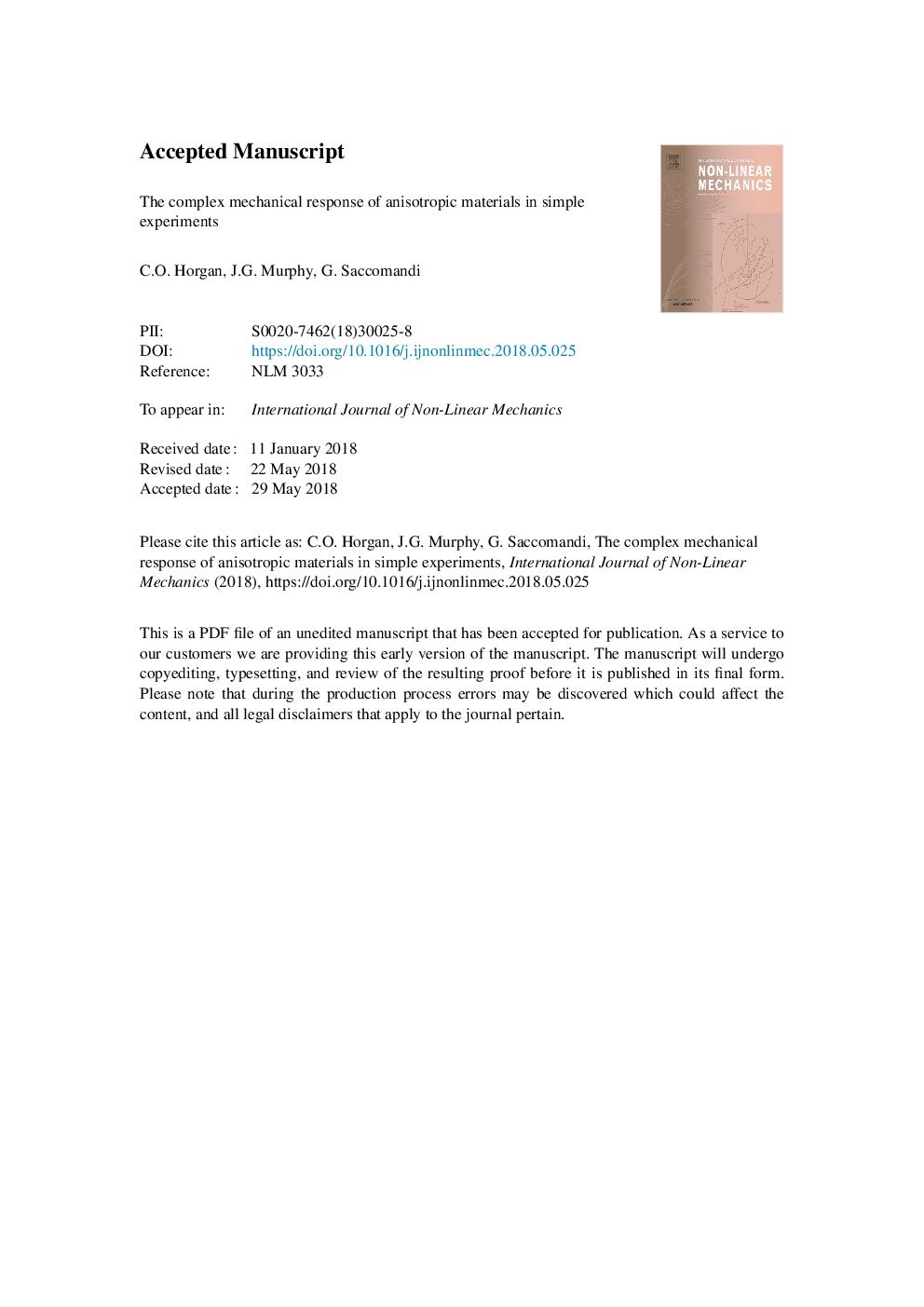| Article ID | Journal | Published Year | Pages | File Type |
|---|---|---|---|---|
| 11027829 | International Journal of Non-Linear Mechanics | 2018 | 18 Pages |
Abstract
The classical stress-strain law for linear incompressible transversely isotropic materials is inverted to obtain the infinitesimal strain as a function of the stress. This relation is then used to obtain the strain response for two stress controlled material characterisation tests, namely simple shear and simple tension. These tests typically constitute the experimental basis of constitutive modelling in biomechanics. It is shown that the strain response for transversely isotropic materials is radically different from that exhibited by isotropic materials. Specifically it is shown that the strain response is fully six-dimensional for both experiments and that the new strain components arising as a result of anisotropy can be significant when compared to the strains that are characteristic of isotropic materials. It is anticipated that this complexity will be amplified in non-linear models. It is also shown that there are orientations of the preferred direction for which a quasi-isotropic response is possible, a so-called magic angle effect.
Related Topics
Physical Sciences and Engineering
Engineering
Mechanical Engineering
Authors
C.O. Horgan, J.G. Murphy, G. Saccomandi,
